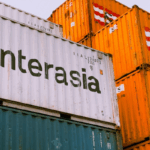The arrival of Javier Milei to the presidency of Argentina has sparked a series of questions about his approach to the country’s economic transformation in various sectors. One area, often overlooked in the media but crucial for a nation’s development, trade strengthening, and citizens’ quality of life, is infrastructure. The potential for economic growth and increased competitiveness that can be unlocked through private sector involvement in infrastructure development is a beacon of hope for Argentina’s future.
Some research has empirically determined that more volume of infrastructure has a positive effect on growth in the long term. With more and better infrastructure, there are also effects on the reduction of inequality, as may be the case with access to drinking water, contributing to almost 35 percent of the Gini reduction on our continent. On the other hand, if the Latin American countries reached the leader in these matters in terms of quantity and quality of infrastructure, the gains in long-term per capita growth would be between 1.1 – 4.percent annually or if they invested in infrastructure at the level of an average East Asian country, between 3.2 – 6.3 percent additional growth could be increased.
It is usually heard within public policy proposals, large public works, and monuments that certain presidents will build. However, because the most essential infrastructure works have a period that transcends governments, providing legal certainty and an attractive climate for investment is necessary. Furthermore, both the pre-feasibility phases, studies, preparation of technical bases, bidding, awarding, construction, and commissioning, require solid regulations to be able to encourage the best companies to compete, offering their services and taking respective risks, which also involves a capital market that collaborates in these matters. In this, agreements between the ruling party and the opposition are crucial; infrastructure is something that is built together, and the use of those with greater powers must be considered when legislating.
As a comparative policy, the Chilean case tends to be very particular and attractive because before the creation of the concession system —which allowed the entry of private companies in these matters in 1992— Chile had serious infrastructure and connectivity problems, which slowed down economic growth and competitiveness. According to estimates by the former Minister of Public Works, Carlos Cruz, of the 80 thousand kilometers paved, 3,000 are concessions. This release of resources has made it possible to provide 10-12 thousand kilometers of alternative road network. Therefore, all the more reason, since Argentina is a food power house, it needs to enhance its infrastructure and connectivity quickly.
Since the launch of the system in Chile, there have been more than USD$20,000 million in concessioned road projects, an amount equivalent to 10 years of public investment from the sectoral Ministry that could not have been managed without the entry of the private companies and that today places the country as a leader in infrastructure in Latin America according to the International Institute for Management Development of Switzerland (IMD, 2023) and that has allowed, through public-private partnership (PPP), the construction of reservoirs, hospitals, prisons, airports and roads, among others.
The challenges of the regulatory environment involve establishing solid regulations, providing them with legitimacy, facing them with a high level of vision, incorporating technology and attention to the reduction of permits and bureaucracy, taking into consideration the environment and conditions of serviceability and capacity, discuss the mechanisms for social evaluation of projects and also consider innovation in contract systems, to allow projects to have a greater seat and relevance in the localities where said infrastructure will be located.
Although from the Chilean experience, the challenges continue to be relevant, to date, the centralized concessions model —endowed with high technical competencies— has had significant success and specific weight in the development of the country and today begins to demand opening to other items for the development of this investment mechanism. This discussion seeks to expand the decision-making mechanism by incorporating the regions in an environment that increasingly tends to deepen the decentralization process and that is logically a subsequent phase, after more than 30 years of validity of the mechanism, the strengthening of subnational governments in a unitary State environment is discussed. In the Argentine case, if the State needs more than 17.3 billion dollars to close infrastructure gaps in areas such as water and sanitation, road connectivity, water risk, care infrastructure, it will only be possible to improve through the incorporation of the private company using State mechanisms that allow giving certainty to the investor.
For this reason, President Javier Milei, the National Congress, and the Governors of the Provinces of Argentina have the vital task of developing a regulatory environment that gives their country the capacity to provide more and better infrastructure development by incorporating the private sector. , which is the engine of growth and innovation. International consortia require robust regulations to enter developing countries and not be at the mercy of electoral processes. The recipe for success in Chile has been based on the fact that this public-private alliance, through the concession system, has been promoted from different agreements between the vast majority of political blocs and has transcended governments. In short, freedom in infrastructure matters has become a state policy.
* Andrés Barrientos is a Civil Engineer, Master in Government Management, and Master in Construction Management. Consultant, public policy analyst, and author. He has worked in the private sector in construction and real estate, as well as in the public sector on subnational competitiveness and territorial analysis, serving as a delegate to the OECD in an expert group on multi-level governance and public investment. Co-founder of the free-market think tank Ciudadano Austral.
Source: We Are Innovation











